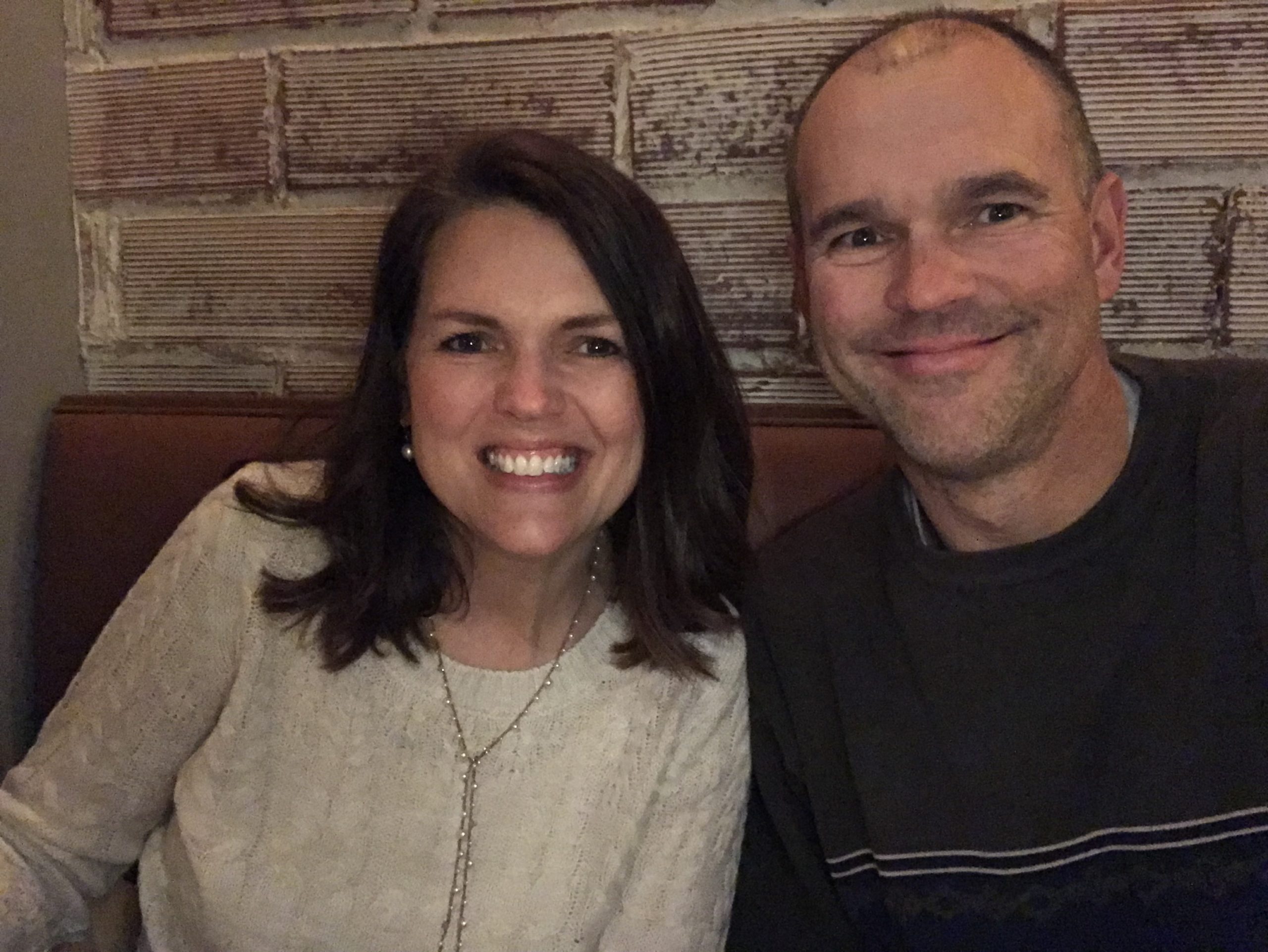How to enjoy other people’s differences (even in your own family)

how to enjoy one another’s differences
(even in your own family)
I spent time at my brother’s house this week.
We have always been opposites. In fact, everyone who ever knew us growing up would have said so, too. I’m sure the difference in our personalities contributed to our many childhood disagreements. (That’s me pinching him in the picture. While smiling for the camera.)
Let me elaborate.
- He played rough; I played gentle (Well, to a point. I am a certified pincher. Many a wrestling match also ended because I bit him to loose myself from his strong grasp. Not proud of that. Just saying.)
- He played sports; I played dolls. (He once jammed all my Barbie dolls under their Barbie beds, couches, and cabinets of my Barbie house, with their arms and legs wadded into uncomfortable balls so I wouldn’t know where they were.)
- He teased (once again, the Barbie torture); I took everything seriously. For a joke, he heisted my blue butterfly necklace and hid it in his room; only he couldn’t find it until 3 years later when I was too mature to wear it. I’ve let go of the bugs, snakes, whoopie cushions, etc., but I’m apparently still bitter about the necklace. (I bought it with my own money. On vacation.)
- He was super messy (hence, the necklace disappearance); I was super neat. (Now we’re both super neat. Crazy.)
- He went through a green and brown phase (for camouflage purposes); I tried to be as stylish as possible (70s and 80s style, of course). Notice the Native American necklace, also purchased on vacation.
- He was always late; I was always on time (now the reverse is true).
- He gave my mother a run for her money; I was fairly complicit to the rules (other than digging in my heels to wear mascara in the 8th grade. It was the 80s, you know. At least I wasn’t wearing blue mascara). Well, and the biting and pinching thing. And maybe some screeching. Okay, we were both a lot of hard work for her.
This weekend, my brother asked me how I thought we were different, and surprisingly, I could only recall our similarities. We love our kids and our spouses passionately–we’d rather be with them than anybody else. We value family, loyalty, God, and country. We read voraciously, and we must buy our books. (Borrowing is so much less satisfying.)
We love to travel and learn. We’re both competitive, and we love playing games (fortunately, having kids cured us both of needing to beat each other). We both love being outdoors, although his insatiable appetite for nature supersedes mine. We both want to take care of our mother. We both make her laugh, hold her hand, and take her for walks. We both kiss her even when she doesn’t want to be kissed.
I think we’ve learned as adults what we failed to learn as kids–that our differing perspectives can work together for a common good. We can’t ignore each other as adults because we both share our mom’s care and everything that goes with it. We enjoy each other’s spouses and kids. We must consider other perspectives, or else everyone loses.
It makes me wonder why so many siblings spend their lives disliking and avoiding each other, just because they’re completely different. (Of course, they are. Everyone who has more than one kid knows that siblings are opposites.) Many people let varying perspectives cause arguments over inheritance and paternal care and vacations and family functions. Why can’t we agree, whether we disagree or not?
History. Maybe that’s the problem–so many people have shared histories that hurt, histories they don’t want to remember. I get it. My brother and I share our dad’s death and our mom’s dementia. Even there we find similarity and difference. But talking about it gives us another point of connection.
We won’t see eye-to-eye on everything, so our interactions are better when we respect our differences rather than seek uniformity. If there’s one place people should feel grace and respect for their uniqueness, it ought to be within their own families. And what would happen if we gave grace (i.e. overlooked differences and annoyances) at work or at church? What would happen to those relationships?
Here’s my free advice for the day, from someone who’s done it wrong more than she’s done it right:
Find similarities with your family members and cherish them. Give grace. (Grace always costs the giver, but it yields rich rewards for everyone.)
If you dwell on your differences, you will go insane (’cause the other person might not ever change). Joy is a choice, after all. (And family is not.)

